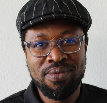Ahead of the G20 summit that was recently held in Osaka, Japan, Russian President Vladimir Putin conducted an interview with Financial Times journalists Lionel Barber and Henry Foy, which gave one not just a fascinating insight into the views of one of the most enigmatic characters in the world of international politics but also left one with much food for thought.
Putin’s claim that, “the liberal idea has outlived its purpose” and that liberalism has become “obsolete” struck a raw nerve with Western intellectual elites, who have arrogated to themselves the right to tell everyone what is right or wrong within a secular humanist, modern state and was the subject of many opinion pieces in Western capitals trying to make sense of the conservative advance that is being witnessed across many Western states as ordinary people seemingly reject the supposedly, “enlightened, rational” and more “reasonable” liberal ideal.
One was reminded of a quote by American author and playwright David Mamet, “Liberalism is a religion. Its tenets cannot be proved, its capacity for waste and destruction demonstrated. But it affords a feeling of spiritual rectitude at little or no cost.” The zeal with which liberals have often dismissed and ridiculed conservative, traditional value systems as “outdated” and “irrelevant” comes to mind here. Liberals have preached the gospel of tolerance and inclusivity, with but one major exception, conservative and traditional, religious views and this is what Putin was “gaaning aan” about.
It wouldn’t be too far-fetched to state that the liberal ideal has become the domain of intellectual elites, with their false sense of superiority, whilst ordinary people have remained in large majority of conservative, traditional leanings hence the backlash in the Western world. Of course one could condescendingly attribute this to the lack of education and exposure of the majority in most countries, but that is exactly the kind of arrogance that has led to a populist backlash against liberal ideals in the world we currently live in.
Here in South Africa, we have a unique situation where we have one of the most celebrated constitutions in the world, with high secular humanist, liberal ideals at the forefront, but one could easily argue that the constitution does not truly reflect the conservative values of the mostly black and Afrikaner majority. It is not an amalgamation of the societal consensus of what values we should espouse as a society, but rather a liberal elite project that is far removed from ordinary, everyday perspectives of normal South Africans.
One only has to look at the migration debate within South Africa to understand this. Liberals embrace multiculturalism and multi-ethnicity at all costs. But from a migration perspective what about the tensions between the interests of locals versus the rights of migrants? Liberals merely dismiss local interests as xenophobia, and this is the kind of issue that has created a platform for right wing populism to flourish in the Western world.
A quick survey on the views of most South Africans about the death penalty and what the constitution upholds would once again reveal the critical disjuncture between our liberal, constitutional ideals and what the average South African actually thinks about the matter. Another pertinent example (being aware of how career limiting this may be, as socialite Zodwa Wabantu and radio DJ Phat Joe have recently found out, as it may be prone to misinterpretation, let me state from the onset that I am pro the rights of the LGBTQI community and am only making this point for illustrative purposes) of the wide gap between liberal ideals and popular value systems in SA, would likely be seen if a survey was conducted of the views of most South Africans about homosexuality in light of our constitutional aspirations.
Is liberalism dead? Of course not methinks, I mean did God really die with Nietzsche’s famous proclamation? Are liberal ideals obsolete? Well, did the “end of ideology” really come about because of the fall of the Berlin Wall and the collapse of the doomed Soviet socialist experiment, as most triumphant neoliberal scholars believed in the 1990s? What is being reversed however is liberalism’s almost messianic claims about what kind of society constitutes the ideal for the best form of human organisation and the constant attacks against traditional institutions such as the church and religious organisations in general.
Mugabe Ratshikuni works for the Gauteng provincial government; He is an activist with a passion for social justice and transformation. He writes here in his personal capacity.

